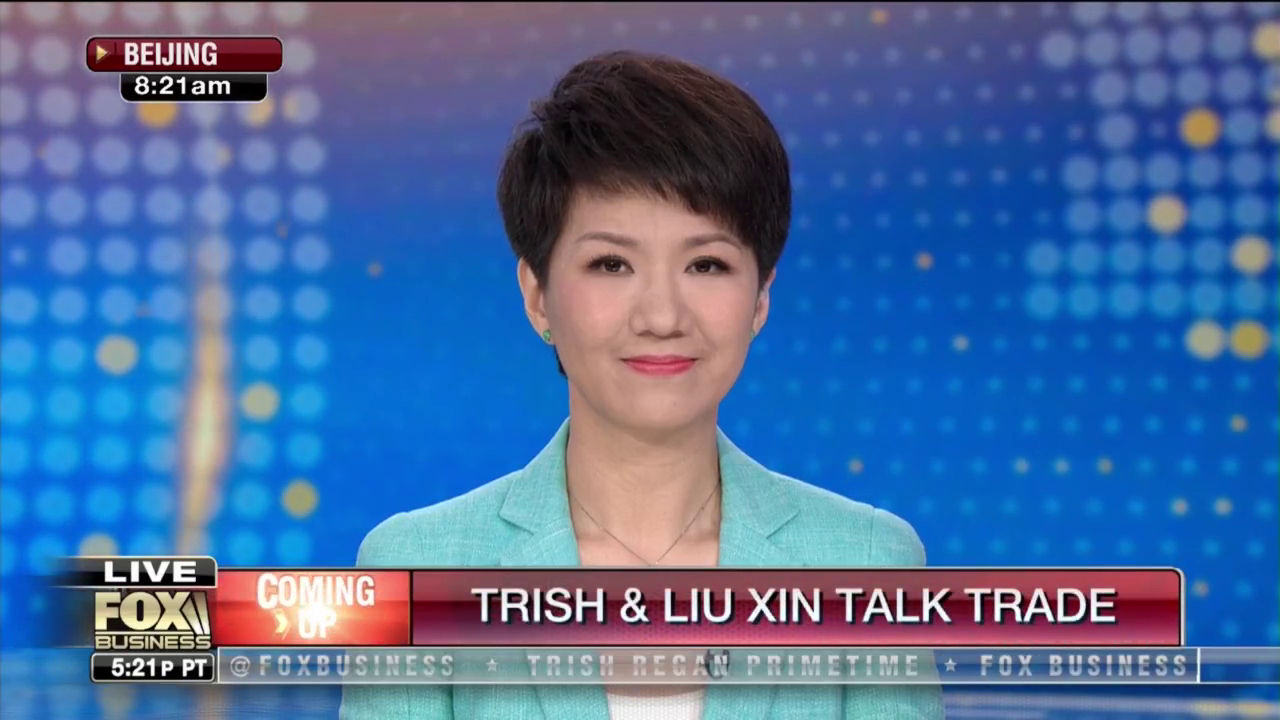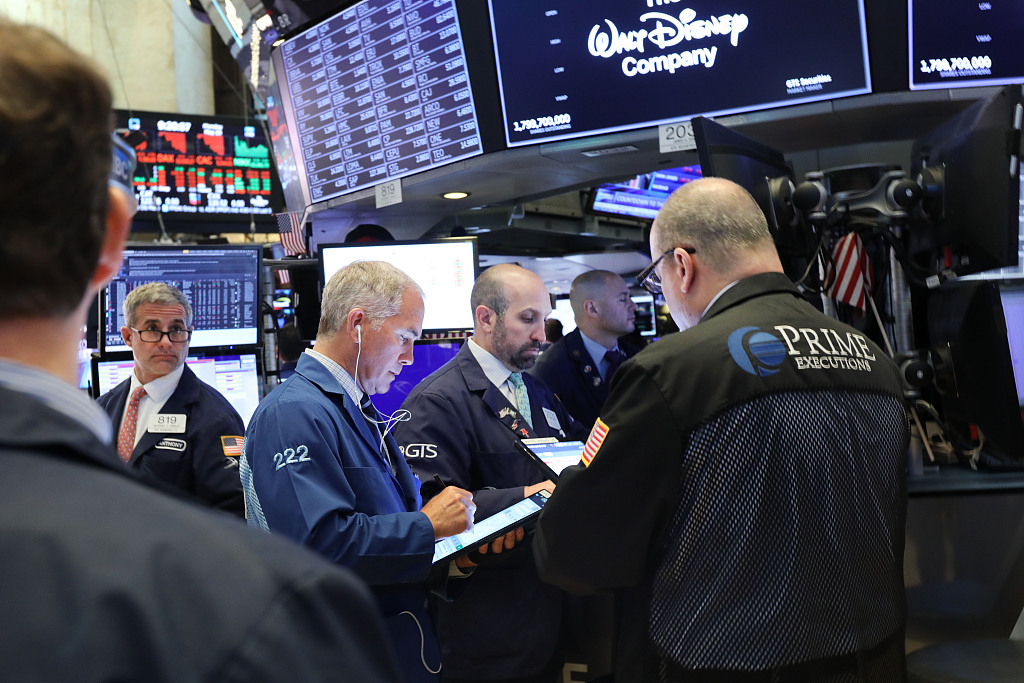
Opinion
11:03, 30-May-2019
Liu Xin gives us the bigger picture
Updated
12:16, 30-May-2019
Tom Fowdy

Editor's note: Tom Fowdy is a British political and international relations analyst and a graduate of Durham and Oxford universities. He writes on topics pertaining to China, the DPRK, Britain and the U.S. The article reflects the author's opinion, and not necessarily the views of CGTN.
On Wednesday evening in the U.S., CGTN host Liu Xin joined Fox Business Network anchor Trish Regan for a televised debate on the subject of the China-U.S. trade war. The hotly anticipated debate saw Liu answer a number of questions pertaining to concerns that the Trump administration used to justify its trade offensive against China, including the subject of intellectual property and technology transfer, tariffs, China's developing country status at the World Trade Organization and the subject of the state-owned economy.
Far from the heated and contentious encounter that some had anticipated, the exchange was in fact thoughtful, fair and pleasant to watch. Liu answered difficult questions with a balanced, nuanced and objective point of view as she set out China's position.
Here are the key takeaways from the points she's made on the show:
When resolving trade matters between China and the U.S., it is ultimately important that America refrains from making sweeping or “blanket” generalizations about Beijing as a whole and look at the bigger picture. China is not in denial that there are issues that could be fixed or improvements that could be made, and has never closed the door on such. On this note, Liu helped remind us that the “sledgehammer” approaches to trade, as well as the rapidly emerging Cold War mentality in Washington, are hardly productive. There can be a positive way forwards.

A screenshot of the debate
A screenshot of the debate
In response to Regan's questions, Liu Xin sought not contention or a crusade against America's trade war against China but instead reflection upon some of the assumptions that have driven such policy choices. That didn't involve denial or rejection of such. She was open and flexible to the American position whilst upholding China's point of view. Quite quickly, she admitted openly there were issues pertaining to things such as intellectual property and commercial secrets, acknowledging changes needed to be made.
Nevertheless, she pointed out this should not be used to make a “blanket generalization” against China and its companies as a whole in a profoundly negative way, something which has become a common path to pursue in Washington. The routine demonization of all things China has ultimately blockaded an objective point of view.
Liu reaffirmed this view well; throughout the debate, she noted that American businesses profit greatly from the Chinese market and that not every Chinese enterprise is a malign and hostile actor. As she observed, sometimes American companies even have had issues with each other on matters such as intellectual property. It is hardly a victimization of the U.S.
Building upon this critique, she sought to further challenge assumptions that China's “state-owned economy” and “state subsidies” give the country an unfair advantage in trade. Explaining that China's socialist market economy is driven by the “allocation of market resources,” she pointed out that 80 percent of employees in China's economy work in fact for private, rather than state-owned enterprises.

Traders work on the floor of the New York Stock Exchange in New York City, May 20, 2019. /VCG Photo
Traders work on the floor of the New York Stock Exchange in New York City, May 20, 2019. /VCG Photo
On the matter of trade itself, she further outlined that 80 percent of Chinese exports also came from the private sector and that 65 percent of what she described as China's “technological innovations” came also from the private sector; all a far cry from the stereotypes induced by the White House.
Of course, what about China as a “developing country” via World Trade Organisation rules? She responded by noting the simple fact that whilst China is the world's largest economy, it has 1.4 billion people. This makes its gross domestic product per capita only a sixth of that of the United States.
Still, does it mean China wants to stay that way forever and abuse its WTO status? Of course not, as she noted, “we want to grow up” but also said that changing the rules pertaining that issue and tariffs is difficult, because if you make concessions to one country you have to give it to all countries, stressing that such is “complicated” and that there is no quick-fix to trade disputes. Thus she stressed the only way to “re-write the rules” is a multilateral one, rather than one catering to the U.S. and thus to the disadvantage of everyone else.
Therefore, in summary, Liu in a confident and calm composure swiftly challenged the overriding assumptions concerning China which have purportedly driven the U.S. towards a trade war, urging the audience to think differently about her country. The debate was positive, civil and constructive on every level from both sides. Regan also presented the American position very well. As a whole, it was a refreshing and welcome change to the abject hysteria which has enveloped Washington's politics over the past year. In that sense, it is a reminder that level heads can and should prevail in the China-U.S. relationship.
(If you want to contribute and have specific expertise, please contact us at opinions@cgtn.com.)

SITEMAP
Copyright © 2018 CGTN. Beijing ICP prepared NO.16065310-3
Copyright © 2018 CGTN. Beijing ICP prepared NO.16065310-3